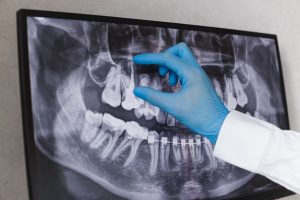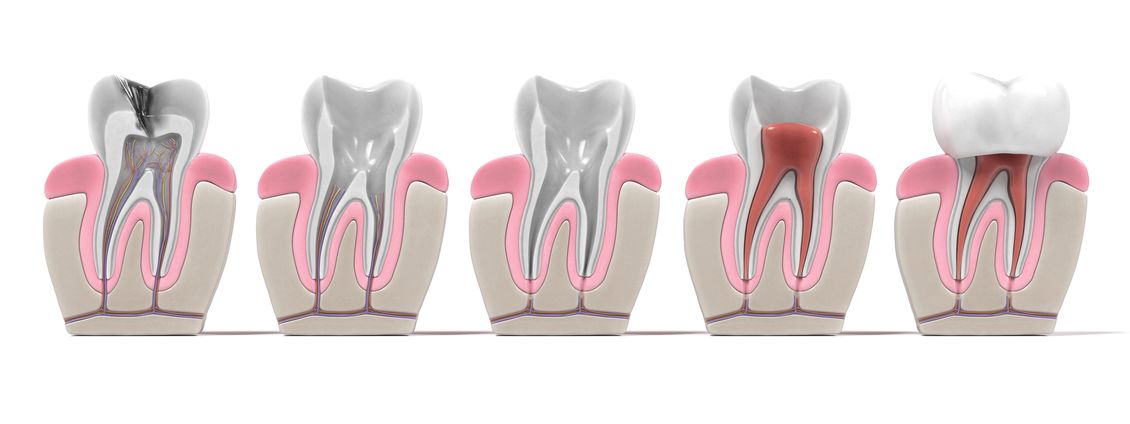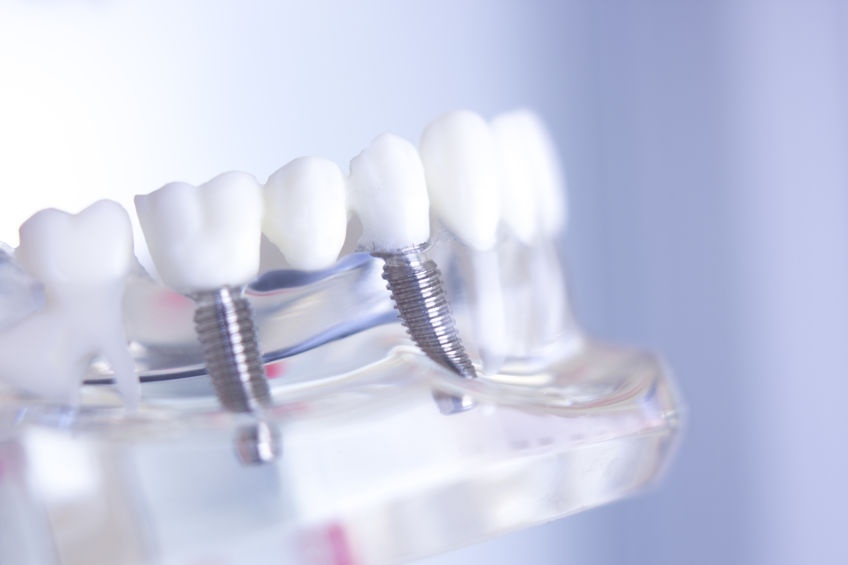At Ocoee Oral Surgery, we understand that many of our patients would rather not have a tooth extracted. Getting a tooth pulled is never fun and, even with great advancements in tooth extraction techniques and recovery methods, some pain is going to be involved. However, and we must stress this, sometimes getting a tooth pulled is the only option available in order to maintain the overall health of the patient’s mouth. In today’s post, we are going to go over some of the reasons that a person may need to get their tooth pulled. Continue reading below to learn more.
Most Common Reasons for Removing a Tooth
In some cases where a tooth is damaged, a root canal may be performed to try and save the tooth, preventing the need for an extraction. A root canal removes the infected or damaged inner pulp of a bad tooth and clears out the canals in which nerves grow into the outer boney structure. After such a procedure, the cleaned-out enamel shell is filled and sealed – keeping the natural tooth in place for many years to come.
Unfortunately, a root canal is not always effective (or even possible) if a tooth has become badly damaged. When this occurs, the tooth must be extracted in order to make sure that no other teeth are affected by the damaged tooth and that the gums and jaw do not become compromised. A few common reasons that a tooth must be extracted include:
Gum Disease
If gum disease is left untreated for a long period of time, it can destroy gum tissue, bone, and ligaments that support healthy teeth. When these structures become deteriorates they become weak, loosening their hold on a patient’s teeth. If the gum disease advances without treatment, it may require the extraction of one or multiple teeth, or the teeth may eventually fall out on their own (a situation that you want to avoid if possible).
Tooth Decay
It is recommended by dental professionals to have dental exams performed at least twice a year to detect early signs of tooth decay. This way, patients can avoid losing teeth due to bacteria that enter the flesh of a tooth. If tooth decay is not avoided, it may lead to advanced tooth decay requiring a root canal and, in some cases, the extraction of the affected teeth.
Broken Tooth
When a tooth breaks, especially if it breaks near the gum line, it may need to be extracted. While extraction may be necessary, it is important to go to a dental professional as quickly as possible in order to determine if the tooth can be capped with a crown. If it can, an extraction can be avoided.
Impacted or Overcrowded Teeth
Sometimes a person’s mouth may not have the space necessary for all of their teeth. When the teeth of a patient are severely overcrowded, one or more teeth may be removed to create more space and promote proper alignment of the remaining teeth. Similarly, an impacted tooth that grows only partially beyond the gum line or is tilted at an abnormal angle may need to be pulled. Most commonly, the wisdom teeth will be removed in order to allow more room for the remainder of the patient’s teeth.
When is Tooth Extraction the Best Choice?
There are many signs that indicate when removing a tooth is the best choice for a patient. Often with wisdom teeth, the only option is to have them removed to eliminate pain or positional problems. Additionally, when teeth are extremely decayed, damaged from trauma, or are causing secondary dental problems due to location – a tooth extraction may be the best choice. Here are other reasons why your dentist may suggest when it is time to get a tooth pulled versus saving the affected tooth:
- Not enough room on the gum line to support the tooth
- Preventing the spread of infection due to advanced tooth decay
- A compromised immune system due to medical conditions or chemotherapy
- Loose teeth due to advanced gum disease
- To provide cosmetic improvements or to enhance the patient’s bite
What Should You Expect When Your Tooth is Removed?
Having a tooth removed usually leads to very few problems down the road. The process is completed by a dentist or oral surgeon and, almost always, makes use of a local anesthetic to make sure that a minimal amount of pain is felt by the patient. If the tooth is below the gum line, broken, or impacted, dental surgery may be required.
When a tooth is extracted, whether it’s a simple extraction or surgical removal, the healing process involves protecting the open socket from food particles or agitating liquids and allowing the tissue to heal and close naturally. This means that a patient must be diligent in their care of the affected area. If they are not, an infection could set in requiring further dental care. Pain-relieving medication will be prescribed along with a list of acceptable foods and an oral rinse that can be used in order to make sure that the exposed tooth socket is properly cleaned.
When it is time to get a tooth pulled, dentists will consult with patients on what options they have for tooth replacement. Depending on which tooth is removed (especially in the case of molar removal) and how many teeth the patient needs to have replaced, you will find many options:
- Dental Implant(s)
- Retained Bridge
- Fixed Bridge
- Partial Dentures
- Complete Denture
Thank you for taking the time to read our blog post on some of the reasons that you may need to get your teeth pulled and the care that needs to be adhered to after the tooth is extracted. If you are in need of an extraction, or you are worried that one of your teeth may be on the verge of extraction, please get in touch with us today to schedule an appointment. We have years of experience handling all sort of tooth extraction scenarios and we are certain that our dedicated staff has the knowledge, tools, and experience necessary to make sure that your experience as little discomfort as possible. To schedule an appointment, please give us a call at 423.479.8544 or schedule an appointment via our contact page.












